We use cookies to make your experience better.
To comply with the new e-Privacy directive, you agree to the privacy policy and our use of cookies.
Hoya Variable Density II Variable density camera filter 6.2 cm
SKU
24066069900
- APS-C size wide angle lenses at focal length less than 13mm
- Full Frame wide angle lenses at focal length less than 24mm
Category: Camera Lens Filters
| Filter size | 62 mm |
|---|---|
| Quantity per pack | 1 pc(s) |
| SKU | 24066069900 |
| EAN | 0024066069900 |
| Manufacturer | Hoya |
| Availability | In Stock |
HOYA Variable Density II is a density adjustable filter with an ND range from 1.5 to 9 f-stops (ND3-400).
The difference with the previous HOYA Variable Density filter is the newly designed rotatable frame with convenient knob, allowing for better operation.
Why variable density filters are important
Variable density filters are widely used because they can replace a set of solid ND filters by providing a range density that can be adjusted according to the desired exposure settings.
In still shooting, variable density filters lower the shutter speed according to the photographer’s intentions when the shutter speed cannot be lowed due to camera limits.
Variable density filters can also increase the amount of boke when shooting in the over-lit conditions, thus, preventing the image from overexposure.
In video shooting, it is fundamental to keep the shutter speed fitting the frame rate setting. That is, to keep it equal to double the frame rate for optimal results. This is because, unlike still photography, an excessively fast shutter speed may create a jarring effect and produce afterimages that will not look good in the final video.
As you can see from the image below, unlike still image, a video clip is made of a sequence of still images. With low shutter speed, each still image will blur but will look smooth in the video sequence. On the contrary, a higher shutter speed will capture the object solid and sharp, but once in a video sequence all objects will appear separated, creating jarring and unnatural looking motion.
By using variable density filters, the shutter speed can be adjusted to the proper value to get that natural and smooth looking motion requested in video footages, as shown in the image below.
Highlighted features
HOYA Variable Density II incorporates exclusive rotatable frame construction that consists of fixed frame and rotatable frame. The rotatable frame gets wider compared to fixed frame size in order to minimize the risk of vignetting when used on wide angle lenses.
Lens cap compatibility
Due to the specific structure of the filter frame HOYA Variable Density II can take one size bigger lens cap than the size of the filter itself. For example, 77mm HOYA Variable Density II can take 82mm lens cap, as shown on the image below.
For longer exposures
Without changing the aperture, the HOYA Variable Density II provides the freedom to change the shutter speed according the effect desired. Effective for motion blurring effects like waterfalls, cars or blurred panning movement to make the subject stand out from the background.
For wider apertures
Allows wider apertures in over-lit conditions be used to decrease depth-of-field, literally focusing more attention on the subject.
Preventing overexposure
Even with a shutter speed of 1/8000 seconds, a large aperture of f/1.4 or f/1.2 can cause overexposure. With the HOYA Variable Density II filter, overexposure issues can be avoided by adjusting the light intake.
For shooting video in cinematic look
Variable Density filter is a must-have item for video bloggers and professional video content creators. Allow cine/video cameras to set the appropriate exposures in a bright lighting conditions to achieve cinematic look.
The difference with the previous HOYA Variable Density filter is the newly designed rotatable frame with convenient knob, allowing for better operation.
Why variable density filters are important
Variable density filters are widely used because they can replace a set of solid ND filters by providing a range density that can be adjusted according to the desired exposure settings.
In still shooting, variable density filters lower the shutter speed according to the photographer’s intentions when the shutter speed cannot be lowed due to camera limits.
Variable density filters can also increase the amount of boke when shooting in the over-lit conditions, thus, preventing the image from overexposure.
In video shooting, it is fundamental to keep the shutter speed fitting the frame rate setting. That is, to keep it equal to double the frame rate for optimal results. This is because, unlike still photography, an excessively fast shutter speed may create a jarring effect and produce afterimages that will not look good in the final video.
As you can see from the image below, unlike still image, a video clip is made of a sequence of still images. With low shutter speed, each still image will blur but will look smooth in the video sequence. On the contrary, a higher shutter speed will capture the object solid and sharp, but once in a video sequence all objects will appear separated, creating jarring and unnatural looking motion.
By using variable density filters, the shutter speed can be adjusted to the proper value to get that natural and smooth looking motion requested in video footages, as shown in the image below.
Highlighted features
HOYA Variable Density II incorporates exclusive rotatable frame construction that consists of fixed frame and rotatable frame. The rotatable frame gets wider compared to fixed frame size in order to minimize the risk of vignetting when used on wide angle lenses.
Lens cap compatibility
Due to the specific structure of the filter frame HOYA Variable Density II can take one size bigger lens cap than the size of the filter itself. For example, 77mm HOYA Variable Density II can take 82mm lens cap, as shown on the image below.
For longer exposures
Without changing the aperture, the HOYA Variable Density II provides the freedom to change the shutter speed according the effect desired. Effective for motion blurring effects like waterfalls, cars or blurred panning movement to make the subject stand out from the background.
For wider apertures
Allows wider apertures in over-lit conditions be used to decrease depth-of-field, literally focusing more attention on the subject.
Preventing overexposure
Even with a shutter speed of 1/8000 seconds, a large aperture of f/1.4 or f/1.2 can cause overexposure. With the HOYA Variable Density II filter, overexposure issues can be avoided by adjusting the light intake.
For shooting video in cinematic look
Variable Density filter is a must-have item for video bloggers and professional video content creators. Allow cine/video cameras to set the appropriate exposures in a bright lighting conditions to achieve cinematic look.
| Features | |
|---|---|
| Filter type | Variable density camera filter |
| Material | Aluminium |
| Filter size | 6.2 cm |
| Product colour | Black |
| F-stop reduction | 1.6 |
| Packaging content | |
| Quantity per pack | 1 pc(s) |
| Technical details | |
|---|---|
| Filter type | Variable density camera filter |
| Material | Aluminium |
| Filter size | 6.2 cm |
| Product colour | Black |
| Packaging data | |
| Quantity per pack | 1 pc(s) |
You may also be interested in
| Product |
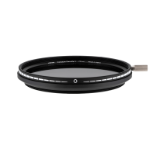
Bestseller
Hoya Variable Density II Variable dens...
Login for pricing
|
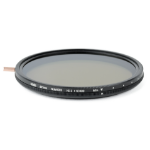
Recommended
Cokin CNV2-82 camera lens filter Neutr...
Login for pricing
|
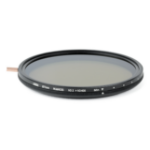 Cokin CNV2-72 camera lens filter Varia...
Login for pricing
Cokin CNV2-72 camera lens filter Varia...
Login for pricing
|
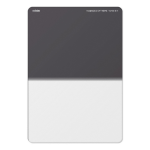 Cokin NUANCES Extreme
Login for pricing
Cokin NUANCES Extreme
Login for pricing
|
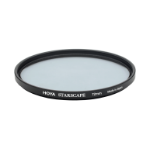
New
Hoya STARSCAPE Light reducer camera fi...
Login for pricing
|
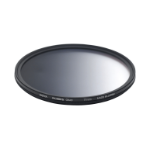
Popular
Hoya PROND16 GRAD Graduated neutral de...
Login for pricing
|
|---|---|---|---|---|---|---|
| SKU |
24066069900
|
CNV2-82
|
CNV2-72
|
NXZG8H
|
24066069290
|
24066069450
|
| Manufacturer |
Hoya
|
Cokin
|
Cokin
|
Cokin
|
Hoya
|
Hoya
|
 >
>
